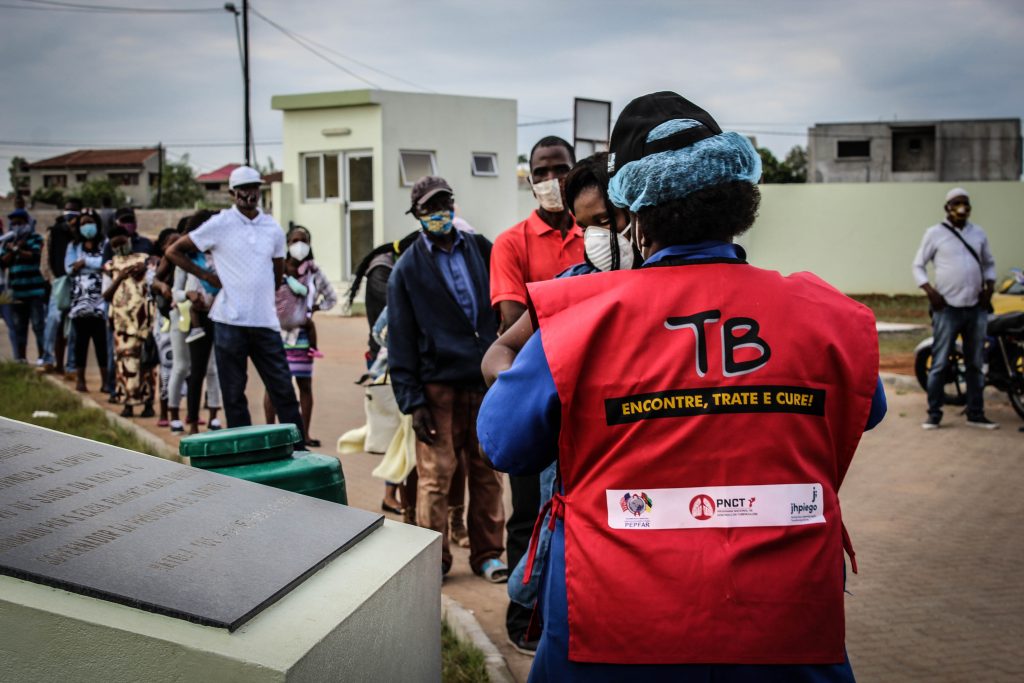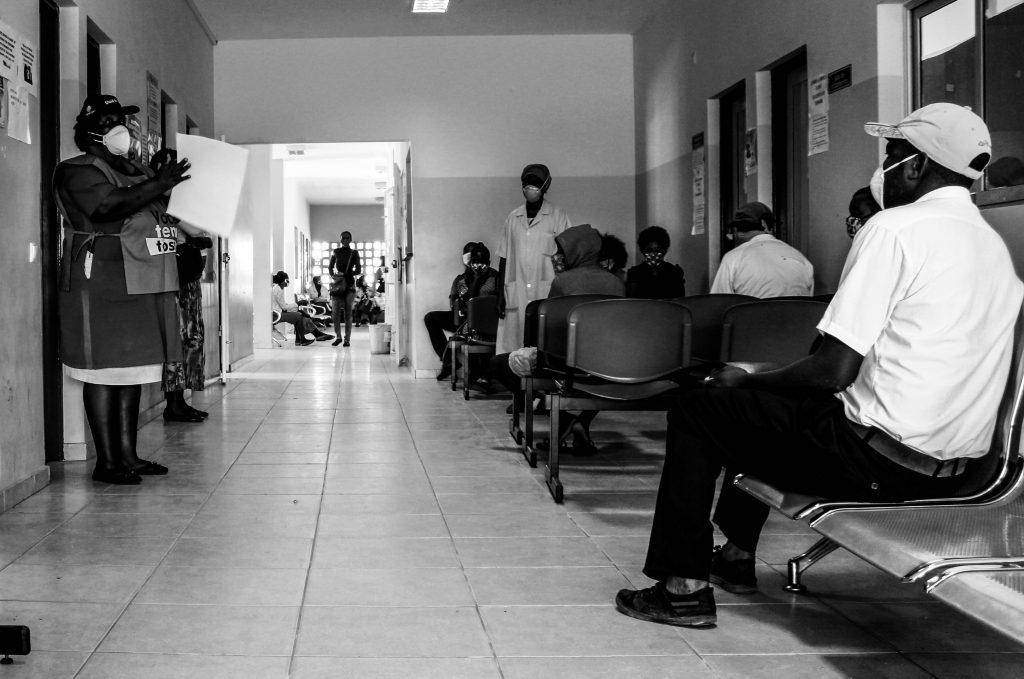
It was not business as usual this morning at the Matola C Health Center. Clients had to wear a mask and, upon their arrival, stand in a queue, maintaining a distance of at least one meter apart. Carolina Justino, wearing a bright red smock and navy blue cap, stood at the head of the line, alongside a handwashing station. Her task was to make sure everyone entering the health center washed their hands properly with soap and running water for at least 40 seconds. She also made sure clients maintained a safe distance—keeping at least a meter or two apart—as they stepped inside the facility.
Carolina is a cough officer, one of nearly 800 charged with identifying and tracking clients with symptoms of TB at health services across 10 provinces in Mozambique. But on this day, Carolina is also concerned with a new, highly infectious disease: COVID-19.
With Mozambique, and the rest of the world, fighting this pandemic, health facilities and the community are taking extra precautions, guided by the national COVID-19 response task forces. To respond to the pandemic, the Mozambique Ministry of Health partnered with Jhpiego to update Carolina and 88 other cough officers at 113 health facilities, including Matola C, on the basic principles of infection prevention and control and standard precautions, such as workplace safety and social distancing and adequate ventilation to prevent the spread of the COVID-19 and other diseases.
The cough officers—in their signature red smocks with the words “Do you have a cough?”—are keen allies in this fight because they know that people living with HIV and TB have vulnerable immune systems and are at risk for COVID-19. They have been working at health facilities since 2016 when Mozambique created the positions to identify coughing clients at the entry point for health services to ensure prompt assessment for TB, adequate clinical care and follow-up and reduce the chances of new infections among patients and health care providers. The program began with support from the U.S. President’s Emergency Plan for AIDS Relief through the U.S. Centers for Disease Control and Prevention, and Jhpiego, in partnership with the Mozambique Ministry of Health.
The recent updated training helped Carolina and her colleagues ensure that they followed the correct infection and prevention measures.
“I learned a lot! Thanks to the training, I can teach clients when they come to the facility, and other people in my community, on proper handwashing and correct use of a mask,” says Carolina, whose red smock advertises her role to “find, cure, treat TB.” “Most people think they wash their hands properly, but they realize they don’t wash correctly when I show them. Getting people to follow social distancing is a challenge.”

In Mozambique, where TB is a leading cause of death and disability in HIV patients, frontline health care providers like cough officer Carolina are playing a significant role in helping prevent, detect and respond to COVID-19 in this vulnerable population as well as among the general population accessing healthcare services.
During her shift, Carolina stepped into the health facility waiting area to educate clients on COVID-19 prevention and personal protection. Besides looking for clients with symptoms of TB, she helps with triage and identifying people with COVID-19 at the health center. The infection prevention and control training she received has shown her how to best prioritize the care of symptomatic patients by making sure the clients are placed in a ventilated waiting area, remain 1-2 meters away from other clients and wear masks. She then sends clients with symptoms of TB and COVID-19 to be further evaluated. Carolina helped to identify two persons with potential symptoms of COVID-19, both of whom were referred to a nearby hospital for additional testing and diagnosis confirmation.
“By protecting yourself from COVID-19, you are also protecting yourself from TB,” Carolina says. “The COVID-19 emergency shouldn’t be an excuse to stop the TB treatment. If a person knows someone who has signs of COVID-19 or TB that may be caused by both diseases, I advise them to reach out to me for further support.”
Fernando Fidelis is the Senior Communications Officer in Jhpiego’s Mozambique office.



